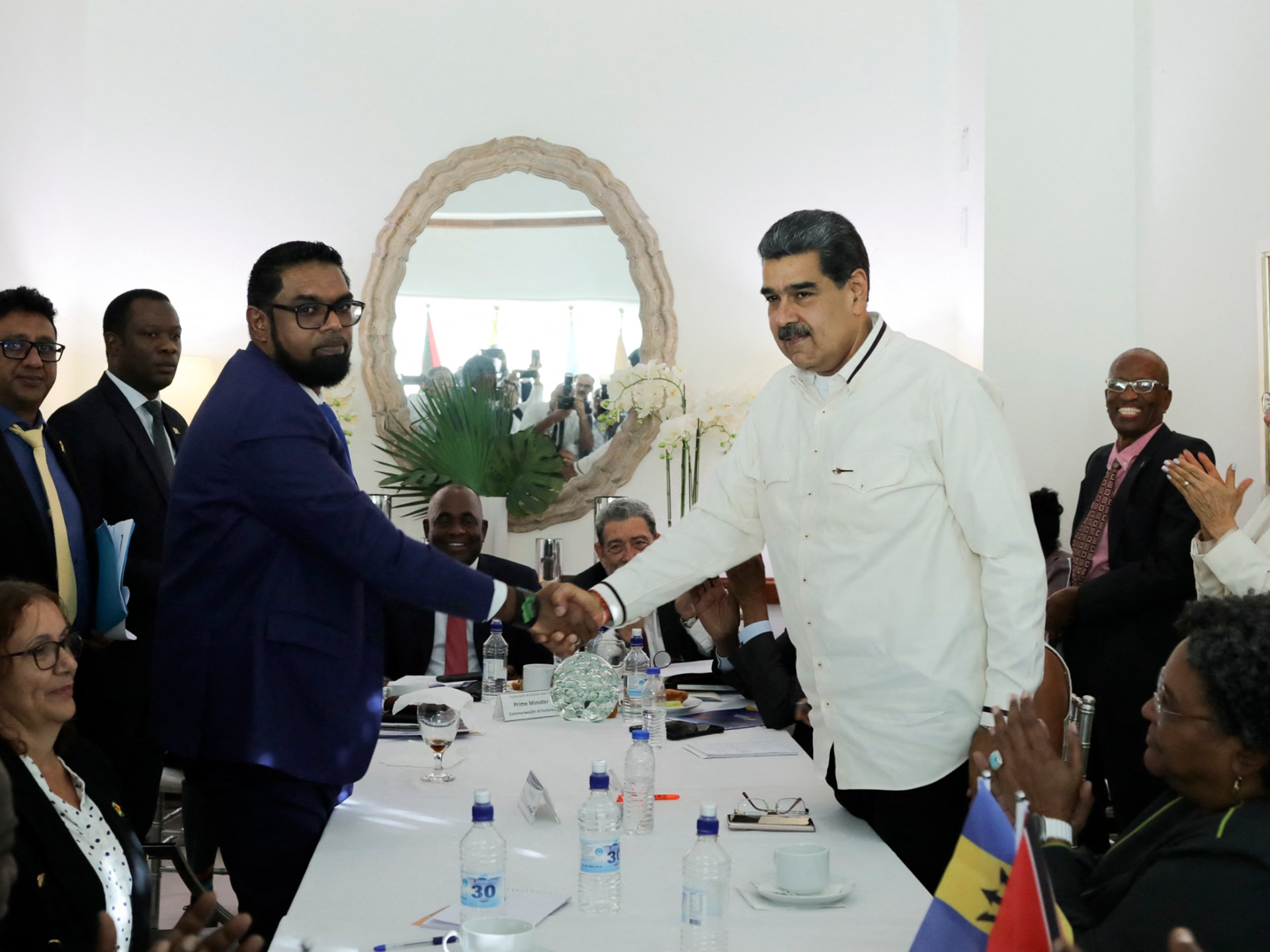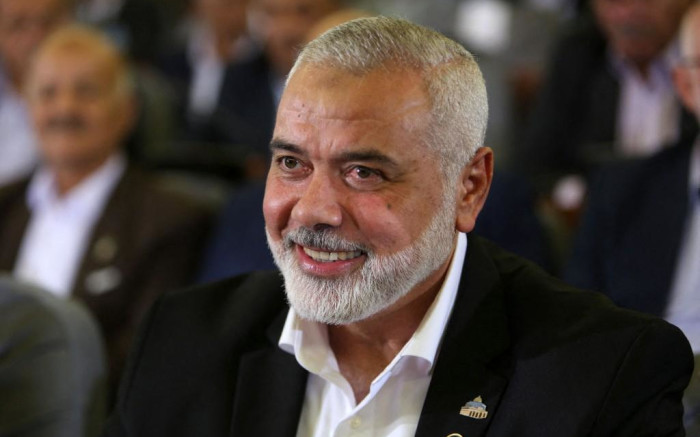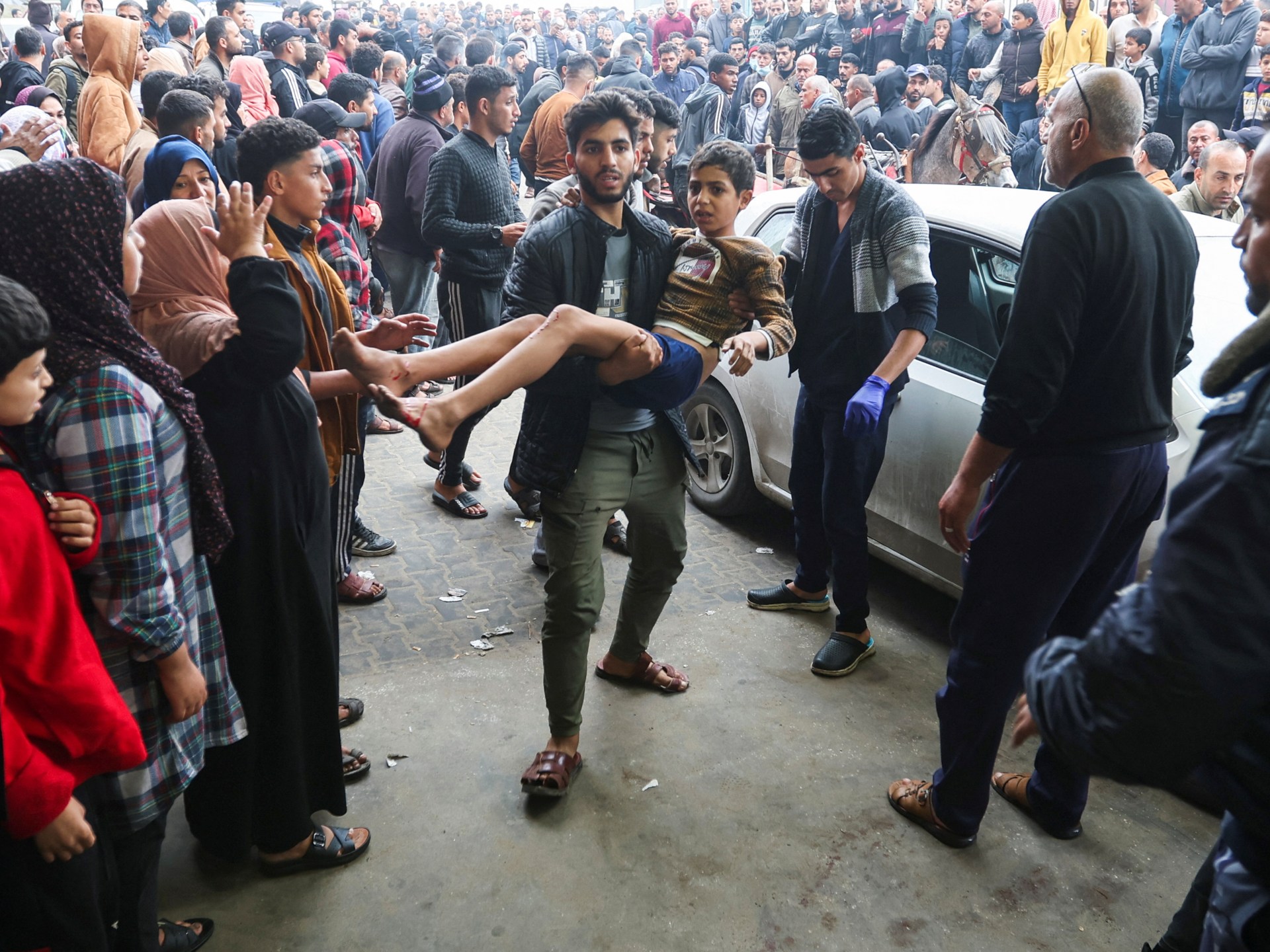
Leaders are holding tense talks after Venezuela organized a referendum to claim oil-rich territories that make up two-thirds of Guyana.
Venezuela and Guyana have agreed not to resort to force to resolve a territorial dispute over the oil-rich Essequibo region, following a tense meeting between the two countries’ leaders in the Caribbean.
Guyanese President Irfaan Ali and Venezuelan President Nicolás Maduro agreed “not to threaten or use force against each other under any circumstances, including in the context of existing controversies between the two states” and “to refrain from escalation either through words or actions.” “. Conflict,” said an 11-point statement read at a press conference after the meeting.
However, the two men failed to make progress in resolving the long-running dispute over the territory as a joint commission made up of both countries’ foreign ministers and other officials was asked to look into the matter and submit a report within three months.
No questions were allowed at the press conference.
Essequibo makes up more than two-thirds of Guyana’s territory and is home to 125,000 of its 800,000 residents.
There was tension rising in the last few weeks after Venezuela a referendum Earlier this month the question of whether to establish a Venezuelan state there was raised, which Guyana feared would be a pretext for a land grab.
Venezuela insists Essequibo should be under its control because it was within its borders during the Spanish colonial period, while Guyana says a border drawn by international arbitrators in 1899 means it is part of Guyana.
The hour-long meeting between Ali and Maduro took place at the main international airport on the eastern Caribbean island of St. Vincent after mediation efforts by the regional groupings of the Community of Latin American and Caribbean States (CELAC) and the Caribbean Community (CARICOM). .
The statement noted the impasse between the two men, who shook hands before their talks.
Guyana argues that the controversy should be resolved by the International Court of Justice in the Netherlands, while Venezuela says the court has no jurisdiction.
Earlier in the day, Guyana’s government issued a statement saying Essequibo was “not open for discussion, negotiation or consultation.” Ali repeated those comments during a press conference he held during a break in talks with Maduro.
“This is all part of Guyana,” Ali said, pointing to a thick leather bracelet on his right wrist that bore the outline of Guyana. “No narrative propaganda [or] A decree can change this. This is Guyana.”
Ali noted that while both parties were committed to maintaining peace in the region, Guyana was “not the aggressor.”
“Guyana does not seek war, but Guyana reserves the right to work with all our partners to ensure the defense of our country,” he said.
Maduro said before the meeting that “we will make the best of it so that our Latin America and the Caribbean remain a zone of peace.”
White House National Security Council spokesman John Kirby said the United States was closely monitoring the situation. “We don’t want there to be any altercations,” Kirby said. “There is no reason for this and our diplomats are operating in real time.”
Maduro has ordered state-owned companies to explore and exploit oil, gas and mines in Essequibo. Both sides have put their militaries on alert.





Recent Comments